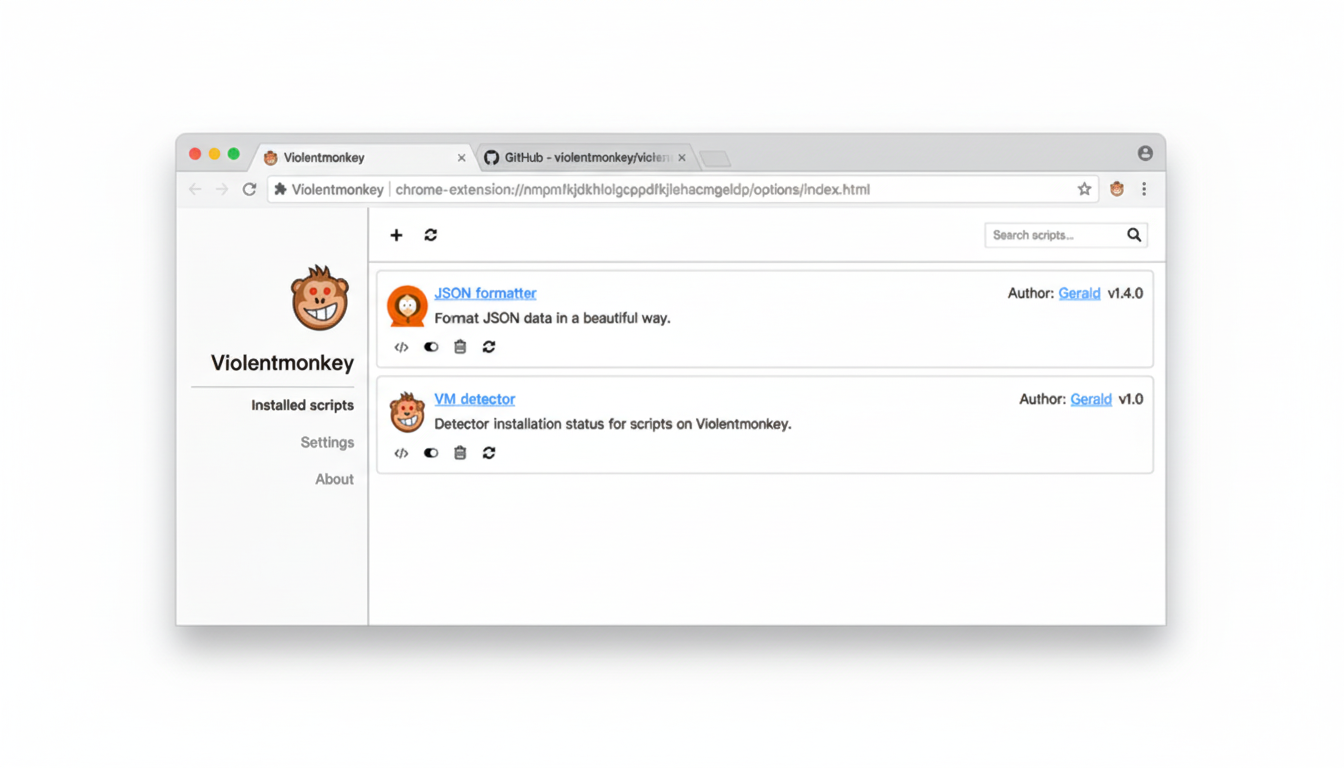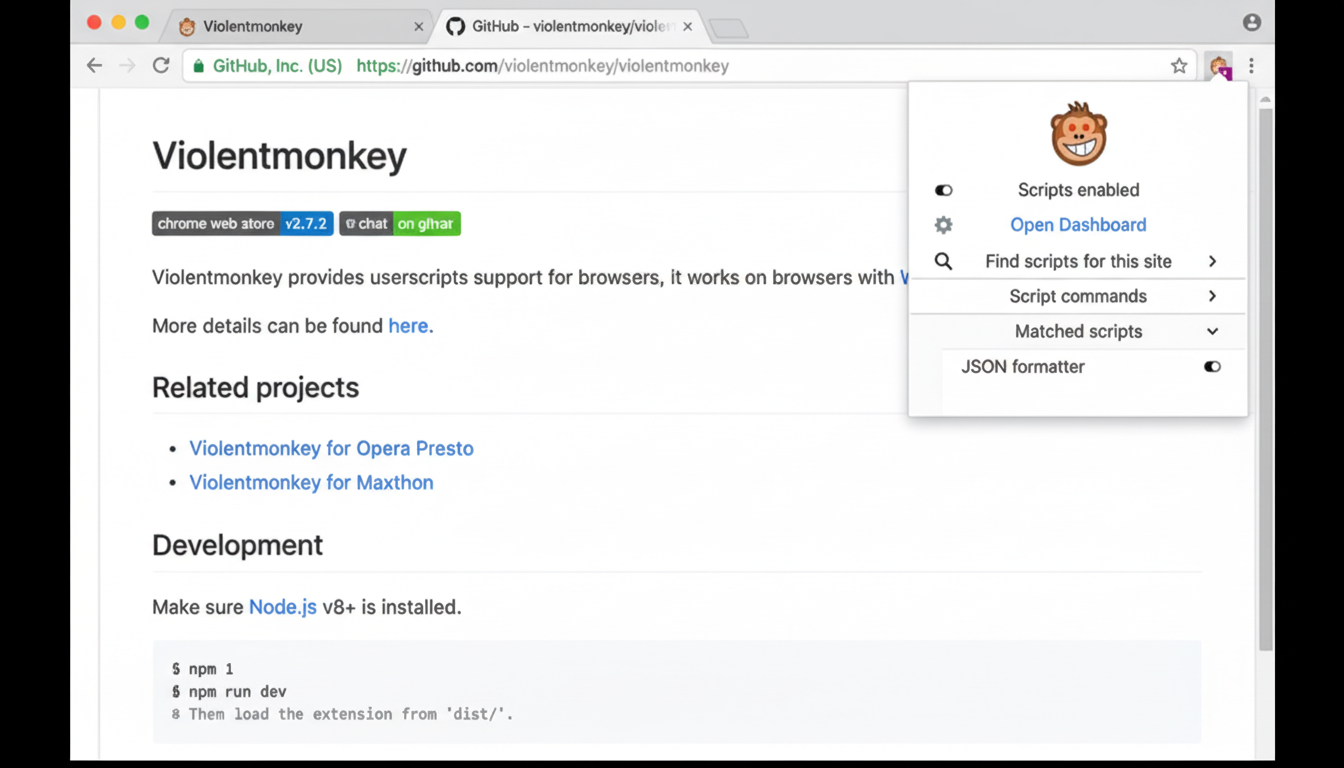I love uBlock Origin and consider it essential, but on my phone, it is not the first extension I install. That spot goes to a userscript manager—specifically Violentmonkey—because it unlocks control and convenience that a single-purpose blocker can’t reach. As mobile browsers expand extension support, userscript managers are quietly becoming the power user’s first move.
Why a Userscript Manager Comes First on Phones
Phones are less patient with taps and demand results. Userscripts—small snippets of JavaScript that adjust how a page looks or behaves—let a single extension work like dozens. Instead of hunting for an add-on to fix each annoyance, I can just fix the site itself: cut pagination down to size, add the missing controls, hide noise, or cut down on repetitive clicks. One tool, endless fixes.

Mozilla fixed this argument by reopening the Android add-ons ecosystem and flagging broad compatibilities. It allowed Firefox for Android to sport hundreds of extensions, while Chrome for Android does not support the desktop’s extension model. Users operating in the wide-open world of mobile have found that a userscript manager can be retooled for the most user-friendly experience.
Violentmonkey on Android is surprisingly ready to use
Violentmonkey resonates with me because it’s open and polished. It’s open source, allows me to read and amend script code on-device, and is available on reputable app stores. It manages everything for me: per-site switches, execution time on document-start or after-load, update checks, and a direct link to the developer’s page. It scales to my phone’s screen adequately, with enough white space to maneuver. I can switch a script on and off for a specific domain, check versions, and browse issues standing in line at a coffee shop. That’s what puts it at the top of my list.
Infinite Scroll kicked down the door for me. I refuse to tread through lackluster single-thread replies, or disorient myself finding a Discord discussion. Pagetual does the work for threads, forums, or often search results. Google Hit Hider is a requirement for anyone who uses multiple search engines. It provides this simple control alongside each link to disable all results from that site in future searches. These aren’t miracles. They’re hours saved, extra tabs avoided, and maybe a split-second of sanity conserved.
Performance and privacy context for mobile browsing today
uBlock Origin is still necessary for cutting trackers and heavy ad scripts. The HTTP Archive finds that most median mobile pages have a significant amount of third-party bloat, with third-party requests commonly comprising nearly 50% of total requests. Academic work by Princeton’s WebTAP and advocacy from the Electronic Frontier Foundation confirm trackers inflate both load times and data usage.

Userscripts do not compete with a blocker; they work with it. They reduce friction—fewer full page loads, fewer context switches—which means fewer wasted taps and sometimes less data. I still install uBlock Origin, but Violentmonkey gets the coveted first slot because it fixes the parts of the web a blocker never touches.
Safety first with userscripts: trust and compartmentalize
Userscripts run in the context of the browser they’re installed in, so the decisions of trust are crucial. I only get scripts from catalogs I trust and read script source when I can. I avoid scripts that ask for overly broad matches. Guidance on third-party JavaScript and software supply chain risks from OWASP is germane: keep to a need-to-know level, verify maintainers, and update wisely.
Operationally, I divide my roles. My everyday browsing occurs in Firefox with Violentmonkey, and my sensitive business—banking, taxes—happens in a different browser with no userscripts installed. It’s compartmentalization, and it dramatically reduces my personal risk posture.
A practical mobile setup for extensions and scripts
- Pick an Android browser with extension support. Firefox is the easy pick, but Kiwi Browser supports Chrome’s extensions too.
- Start with Violentmonkey. Add a few vetted scripts that assist in your browsing habits.
- Add uBlock Origin. Make data-driven decisions.
Bottom line: why a userscript manager comes first on phones
uBlock Origin remains non-negotiable for privacy and speed, but on my phone, a userscript manager is at the top. Violentmonkey is a Swiss Army knife that translates a drawer full of specialized add-ons into focused, editable tools tailored to the websites I really use. For mobile power users, that’s the real story.

